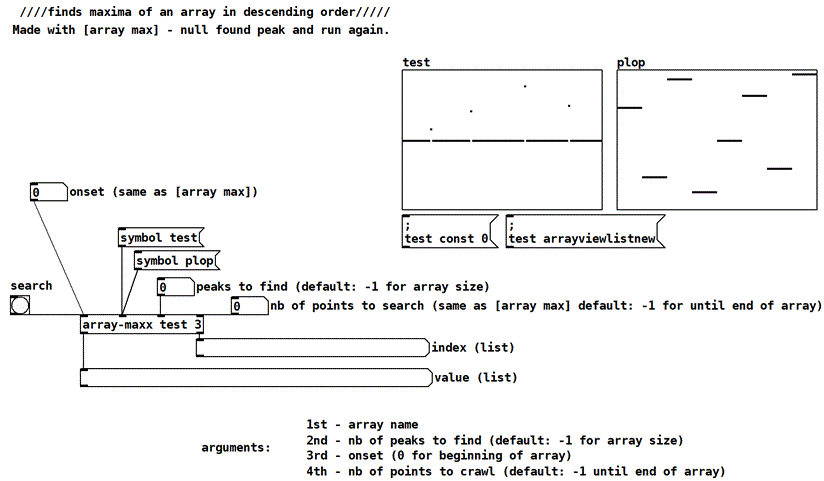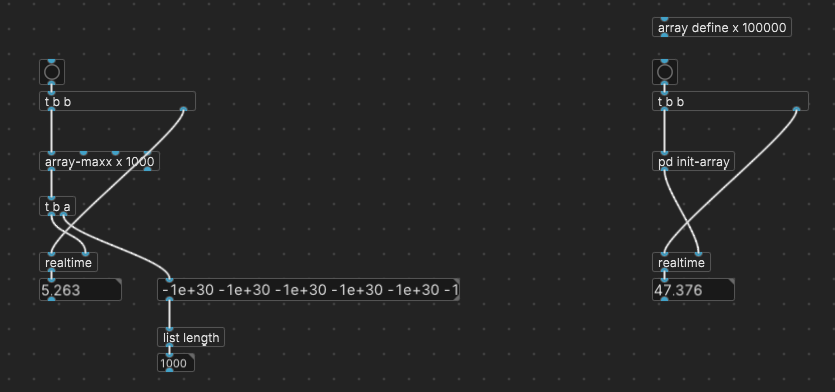Vanilla abstraction, made with [array-max] and [array-min] by nulling found peak and run again.
array-maxx.pd
array-maxx-help.pd
array-minn.pd

array-maxx and array-minn - get multiple peaks of an array
Vanilla abstraction, made with [array-max] and [array-min] by nulling found peak and run again.
array-maxx.pd
array-maxx-help.pd
array-minn.pd

@lacuna Cool idea --
I was curious about performance, so I made a little benchmarking patch.
Over to the right, there is a button to initialize the array to 100000 random values between 0 and 999999. In plugdata, this took 35-50 ms; in vanilla, about 14 ms. (2-3x performance degradation in plugdata is... a curious thing, but not relevant to the performance of the abstraction.)
Then I ran [array-maxx x 1000] on it, and found that it took 3-5 ms to do the 1000 array scans... which I found confusing: why would 100,000,000 array accesses be an order of magnitude faster than 100,000 array writes? (Sure, it's 1000 times the [array max] primitive, but I didn't expect so much faster.)
Then I had a look at the results, which were all -1e+30, your sentinel value. It's doing the right number of iterations, but not yielding good data.
That makes me suspect that [array-maxx] might, on my machine, not be doing the work, and thus finishing early... a bug? Version mismatch?

(Specifically, what I was wondering about performance is, which is faster? To scan the entire input array n times, with each scan in a primitive, or to scan the input array once and manipulate the output list per value? I might try that later, but I'd like to be sure [array-maxx] isn't malfunctioning first. I'd guess, if the input array is large and n is small, the second approach could be faster, but as n gets closer to the input array size, it would degrade.)
hjh
Oops! Looks like something went wrong!